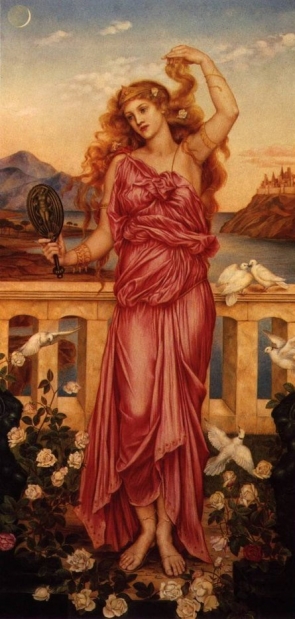
Helen of Troy represents the perfect embodiment of beauty, transferred to the tragedy from Greek mythology. Finding Helena marks the triumph of Faustus in his search for an absolute ideal. Her images were invoked through magic, but the aesthetic model that emerged opens up a new era in the existence of the protagonist.
Belief in beautiful things, correlated with antiquity, inspired Goethe, who considered that art could arouse the desire for freedom in people. Helen is the personification of the highest prettiness, the sought-after hero, who has to go through stages of approaching her, corresponding to the evolution of the concept of the pulchritude among the Greeks.
Three evolutionary stages of ancient fantasy are expected by the scholar. The lowest are fantastic creatures such as vultures, sphinxes, or sirens. At the middle stair are the images of demigods and demi-humans. At the highest level, Faust meets the philosophers Thales and Anaxagoras, seeking to perceive the origin of the world. Only as a result of this journey, the doctor is prepared to meet with Helen, symbolizing a different order of spirituality.
The third act depicts the union of Faust and Helen, magically resurrected at the time of her return after the defeat of Troy. She recalls episodes of her past life from the writings in the Iliad. The marriage between the scientist and Helena symbolizes the combination of classical antique and romantic medieval patterns. Its result is the boy Euphorion, combining harmonic sympathy and restless spirit. According to Goethe, Byron was a modern poet who achieved such unity.
Faust finds peace, which, however, cannot be long, because the spirit of antiquity is incompatible with current reality. The death of Euphorion is foreshadowing the destruction of marriage. With the departure of the boy, Faust leaves only her clothes and sad memories.
Helen of Troy in the Essays


Leave a Reply